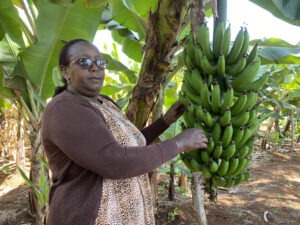
As the world grapples with the increasing threats of climate change, there is mounting evidence that our planet is experiencing a wave of uncertainties. From extreme weather events to rising temperatures and melting ice caps. These global shifts have far-reaching consequences for ecosystems, communities, and future generations. In this article, we will explore some of the current climate changes occurring across the world and the implications they hold for our planet.
Rising Temperatures
One of the most noticeable and widely studied consequences of climate change is the rise in global temperatures. The Earth’s average surface temperature has been steadily increasing leading to record-breaking heatwaves in many regions. Heatwaves have become more frequent, more intense, and longer-lasting posing a serious threat to human health, agriculture and ecosystems.
Extreme Weather
Climate change has fueled an increase in extreme weather conditions such as hurricanes, droughts, floods, and wildfires. These events have become more frequent and more severe causing widespread devastation and loss of life. Coastal areas are particularly vulnerable to stronger hurricanes and storm surges while prolonged droughts impact agricultural productivity and water availability.
Melting Ice Caps and Glaciers
The Earth’s polar regions and glaciers are experiencing significant melting due to rising temperatures. Arctic sea ice continues to shrink at an alarming rate affecting marine ecosystems and accelerating the pace of global warming. Similarly, melting glaciers contribute to rising sea levels, threatening coastal cities and island nations with inundation and increased vulnerability to storm surges.
Changing Rainfall Patterns
Climate change is altering rainfall patterns leading to more intense precipitation events in some areas and extended dry spells in others. Regions that rely on rainfall for agriculture face increased uncertainty jeopardizing food security and livelihoods. The increased frequency of heavy rainfall events also heightens the risk of flooding and infrastructure damage.
Ocean Acidification and Coral Bleaching
Rising carbon dioxide emissions are not only warming the planet but also leading to the acidification of our oceans. The increased acidity poses a severe threat to marine life especially coral reefs. Coral bleaching events triggered by stress from warming waters have become more frequent and widespread causing irreparable damage to these vital ecosystems and the countless species they support.
Health Risks
Climate change poses numerous health risks, including heat-related illnesses, respiratory problems due to poor air quality and the spread of vector-borne diseases. Heatwaves, intensified by rising temperatures, have taken a toll on vulnerable populations especially the elderly and those in low-income communities. Mitigating climate change is crucial to safeguarding human health and well-being.
Displacement and Migration
The impacts of climate change such as sea-level rise and intensified natural disasters can force communities to abandon their homes and seek refuge elsewhere. This leads to increased displacement and migration putting additional strain on already vulnerable populations and potentially sparking social and political conflicts. International cooperation and policies that support climate-induced migrants are vital in addressing this humanitarian crisis.
Solutions
Transition to Renewable Energy
Reducing greenhouse gas emissions is critical in combating climate change. Transitioning from fossil fuels to renewable energy sources such as solar and wind power has gained momentum worldwide. Investments in renewable energy infrastructure coupled with supportive policies and incentives are essential for achieving a sustainable and low-carbon future.
Sustainable Transport
Transportation is a major contributor to greenhouse gas emissions. The promotion of sustainable transport including electric vehicles, improved public transportation systems and active transportation options like cycling and walking can significantly reduce carbon footprints and improve air quality in urban areas.
Adaptation
Every other person around the world are recognizing that adaptation must also be part of the response to climate change. From flood-affected areas to regions facing increased droughts and wild fires. New initiative focused on boosting resilience will help immensely. Those include managing or preventing land erosion, building microgrids and other energy systems build to withstand disruptions and designing building with rising sea levels in mind.
Reforestation and Conservation
Protecting and restoring forests as well as preserving biodiversity-rich areas plays a vital role in mitigating climate change. Reforestation efforts coupled with sustainable land management practices will reduce carbon dioxide and help restore ecological balance. Moreover, conserving ecosystems and protecting natural habitats are essential for maintaining biodiversity.
International Cooperation and Policy
Addressing climate change requires global cooperation and strong policy frameworks. International agreements such as the Paris Agreement provide a foundation for collective action. Governments, private sectors and civil society must collaborate to implement policies that prioritize sustainability and encourage innovation that’s in line with greener economy.
The current climate changes occurring across the world are undeniable and demand urgent action. From rising temperatures to extreme weather conditions and the loss of ice caps, the consequences of climate change are far-reaching and affect every corner of our planet. It is crucial for individuals, communities, governments, and international bodies to work together to mitigate greenhouse gas emissions, adapt to the changes already underway and protect the vulnerable ecosystems and communities at risk. It’s only through collective efforts that we can address the challenges posed by climate change and secure a sustainable future for generations to come.
Subscribe to our newsletter to get interesting news stories everyday






